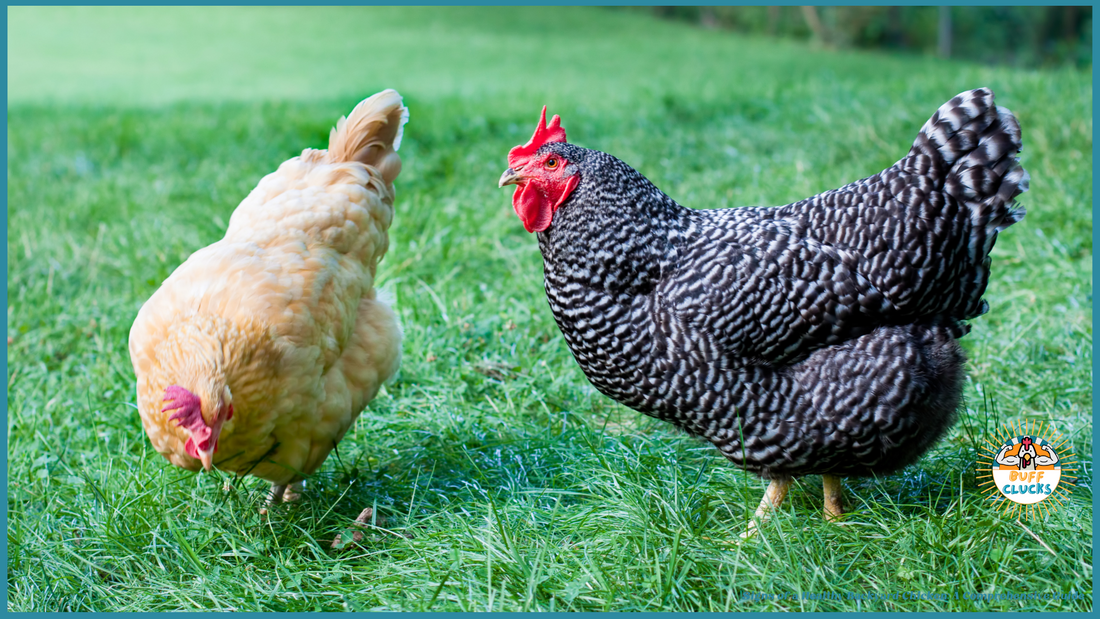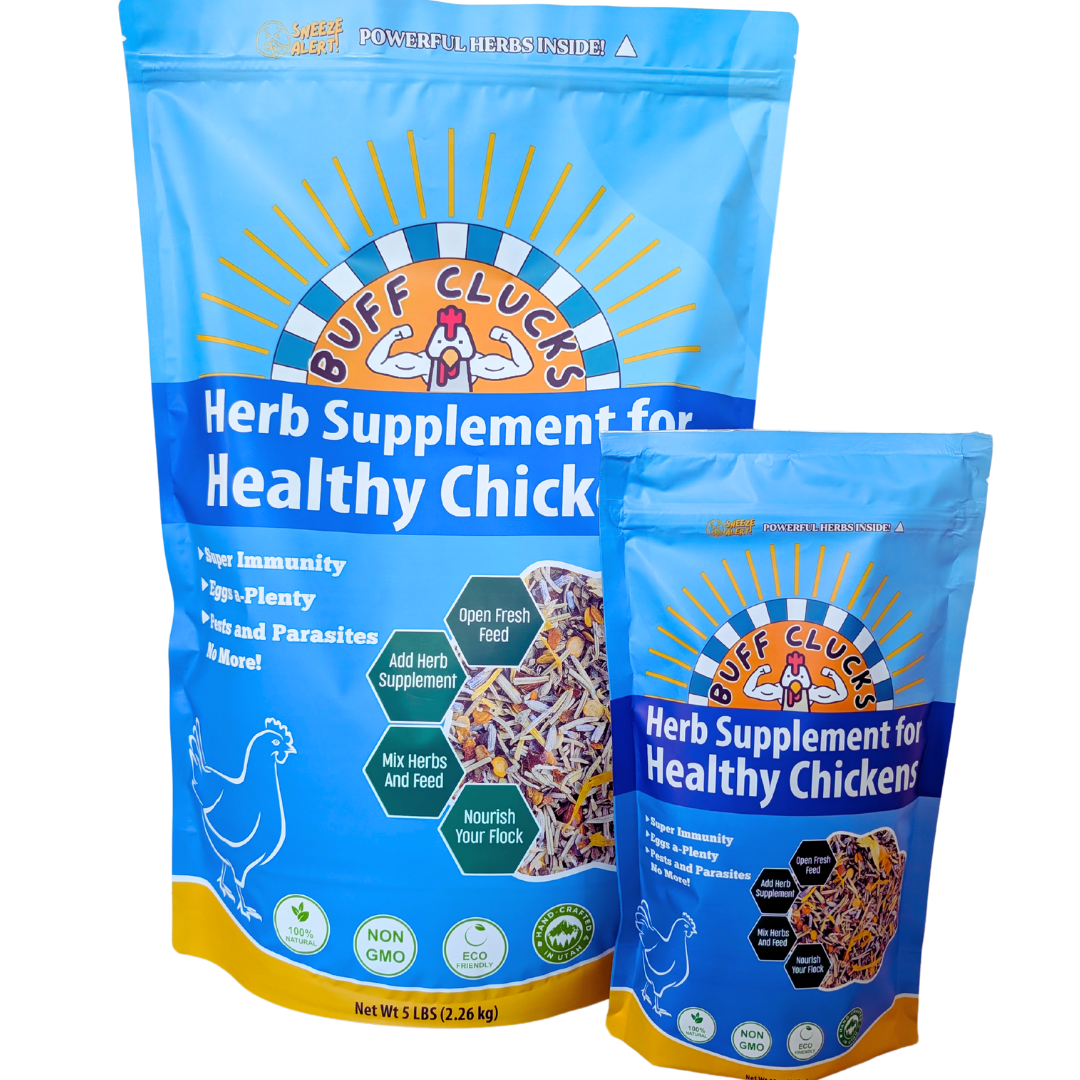
Signs of a Healthy Backyard Chicken: A Comprehensive Guide
Imagine stepping into your backyard, coffee steaming in your hand, and your chickens rush up to greet you, clucking happily and fluffing their feathers. It’s the kind of moment that makes being a chicken owner feel like pure bliss. But how do you really know if your flock is as healthy as they seem?
Don’t worry, we’ve got your back (and your chickens’)! Let’s answer the question of what are the signs of a healthy backyard chicken, so you can rest easy knowing your flock is in tip-top shape and your coop is running as smooth as freshly laid eggs.
Bright Backyard Chicken Eyes
First things first, let’s talk about those beady little eyes. A healthy backyard chicken has bright, clear, and alert eyes. However, If you notice sunken, cloudy eyes, or excess fluid or mucus around the eye area, it’s time to scramble into action and investigate further. These can be signs of illness such as Cholera and Conjunctivitis. Don't just wing it, consult a vet to make sure your chickens get the care they need.
Clear Nostrils
Your chickens should have clear, clean nostrils with no goopy snot or weird crusts. If they're sneezing more than your uncle during allergy season, it might be time for a check-up!

Clean Mouth
A healthy chicken's mouth should be free of bad breath or funky spots. If it smells worse than a coop after a rainstorm, something’s not right! Your chickens should also breathe easily with their mouths closed, except when they’re cooling off in hot weather. If cooling your chicken down doesn’t result in it closing its mouth while breathing, your chicken might be under the weather.
Well-Formed Chicken Feet
Check those chicken tootsies! Make sure their three front toes are pointing straight ahead and not turning outward or inward. The hock joints should stay apart, and their feet shouldn’t be webbed, though a little webbing can sometimes be a genetic trait. Look for smooth, bump-free feet with no crusty scales. If they’re walking like they stepped on a Lego, you might have a case of bumblefoot or scaly leg mites on your hands. Keep an eye out for any swelling on their legs or toes and check the bottom of their feet for any raw, open areas.
Smooth Backyard Chicken Feathers
Your chicken should have smooth, shiny, and well-maintained feathers—like they just left the salon with a fresh blowout. They’ll preen themselves regularly to keep their feathers in tip-top shape, ensuring they’re ready for a dust bath or a strut around the yard.
Now, if your chicken looks more like it’s wearing last season’s molted feathers, you might have an issue on your hands. Patchy, dull, or broken feathers could mean parasites, stress, pecking order disputes, or poor nutrition. Wings should be carried close to the body, not dropping or twisted unless your breed normally has wings that point downward.
Hens kept with a rooster may have bare patches on their back and the base of their neck from mating, this is normal. However, open sores or swelling where the skin is bare should raise concerns.

Bright Combs and Wattles
Scratching your head about combs and wattles? They’re not a witty pet name, combs and wattles are the red fleshy parts on your chicken’s head and throat. A healthy chicken will sport a bright red comb and wattles, and they’ll be smooth to the touch. If the comb and wattles are pale, shrunken, or discolored (especially blue or purple), it could mean trouble. These are often signs of circulatory or respiratory problems, so don’t brush it off like it’s nothing. You’ll want to ruffle some feathers and investigate further.
Strong Shells and Vibrant Yolks
One of the best perks of having backyard chickens is, of course, the eggs. And happy, healthy hens lay consistently delicious eggs with strong shells and vibrant yolks! Strong shells should be about 0.3 millimeters thick, and you can expect around 5–6 eggs per week, especially in their prime laying years, with peak production in the first year.
Keep in mind that egg production will gradually decrease as your hens age. If the yolks are pale, it could be from an imbalance in their diet (like too many treats or scraps). To maintain vibrant yolks, limit treats to less than 10% of their diet and opt for healthier treat options.
Consistent Droppings
Yes, we know, not the most glamorous subject, but a chicken’s droppings can tell you a lot about their health. A healthy chicken’s poop should be well-formed, with a firm consistency and a mix of brown and white (the white part is uric acid, which is normal).
Keep an eye on the business end of your bird. The vent, the common opening for feces, mating, and passing eggs, should be clean and tidy, not too dry or wet. While the feathers around the vent shouldn’t be matted with feces, and there should be no sores or wounds visible.
Abnormal droppings to watch out for include diarrhea (unformed feces), Malena (black, tarry feces), reduced or absent droppings, undigested food, green urates in fresh droppings, excessive urine, or reduced urine output, and if you notice runny, foamy, or bloody droppings, your chicken might have an infection or be dealing with digestive issues.

Good Backyard Chicken Appetite
A healthy chicken is a hungry chicken! If your flock is enthusiastically running towards their food or snatching treats out of your hand like they haven’t eaten in days (even though they just had breakfast), it’s a good sign. Chickens love to eat, and they should have a hearty appetite to maintain their energy levels and egg-laying skills.
Great Backyard Chicken Behavior
Your backyard hens should be engaged and lively, spending their days scratching, pecking, and foraging to their heart’s content. Chickens are naturally curious, always exploring their environment, hunting for bugs, and enjoying dust baths. If you notice a chicken that’s lounging too much, not participating with the flock, or moving sluggishly, it could indicate illness, injury, or boredom. Yes, chickens can get bored too, so it's important to keep them stimulated.
At the same time, just like us, chickens need their beauty sleep. A healthy chicken will roost at night and get plenty of rest. If your chickens aren’t perching on their roosts, seem restless at night, or are sleeping during the day, it’s worth checking their sleeping arrangements and overall health.
Remember, breed differences do play a role, some breeds are more nervous and flighty, while others are calm but busy. In very warm weather, reduced activity is also normal. Ensuring your coop is cozy, clean, and predator-proof will help your chickens feel secure and get the rest they need.
Keep Your Backyard Chickens Happy and Healthy
Become the best flock keeper around by treating your backyard chickens as more than just egg machines. By keeping an eye out for these health signs, you’ll ensure your chickens are living their best-feathered life.
Remember, the more you know your chickens, the easier it’ll be to spot when something’s off. Trust your gut, and you’ll keep your coop clucking along smoothly. Healthy chickens, happy coop, and eggs for days—what more could you ask for?

























